#mcdull
Explore tagged Tumblr posts
Text
SF6_jamied🥊🍶
Jamie and Balrog both hate fish🐟
(Your childishness is kind of cute



7 notes
·
View notes
Text
youtube
McDull & Memories of Hong Kong, July 27, 2023
It has been so many years. I wonder if McDull still holds the same importance to most Hong Kongers today. Accented Cinema
#McDull#Hong Kong#nostalgia#animation#urban#history#economics#working class#Accented Cinema#China#mundane#apathy#politics#unemployment#film#Alice Mak#Brian Tse#pop culture
7 notes
·
View notes
Text
My cartoon memories Part 1

Old Master Q (��夫子) is a comic that I have loved since I was a child. Although it may be unfamiliar to people from non-Chinese speaking backgrounds, its humor is easy to understand.
The story of this comic is very simple. It tells the daily life story of Old Master Q and his two friends - Dafanshu (大番薯) and Mr. Qin (秦先生). Sometimes it also mixes in elements that deviate from reality, such as myths, vampires and aliens.
As a comic strip, Old Master Q's Story certainly satirized many current events in Hong Kong society at that time, such as trendy culture, crime, and over-Westernized Chinese. But unfortunately, its animation and live-action works are not as funny as the original comics, which feels very pity.

There is no shortage of outstanding cartoonists in the Chinese world. Not only Hong Kong, but Taiwan also has outstanding cartoonists.
For example, Brother San and Auntie (阿三哥與大嬸婆) in the picture above were drawn by Liu Xingqin (劉興欽). His comics emphasize the local sentiments of Taiwanese people.
Cai Zhizhong (蔡志忠) is a Taiwanese cartoonist whom I have liked since I was a child. His comics are mainly based on Chinese classical literature and works by Hundred Schools of Thought. But that was a long time ago. In recent years, he has become a monk.
Zhu Deyong (朱德庸)'s comics are basically about the feasting and feasting of modern society. It was difficult to understand when I was a child, and I didn't understand his comics until I went to college. He appears to be semi-retired at the moment.
Among Taiwanese cartoonists, I still like Xiao Yanzhong (蕭言中) the best. I have read his comics as early as elementary school, and now I still find them interesting after reading them again. Although he has passed away, his works are still worth remembering.

There are not only cartoonists in Taiwan and Hong Kong, but also very outstanding animations that you can watch.
What we are going to talk about here is McDull (麥兜), a well-known Hong Kong cartoon character. We can be attracted by his child-like appearance and personality, while adults can easily understand the philosophy of life conveyed in the story. He is a child with an unbridled and real heart. McDull is undoubtedly the The Hong Kong version of Peanuts repeatedly reflects ordinary but wise stories. Unfortunately, McDull came to an end in 2016, apparently in order to promote it in the mainland market.
Others like A Chinese Ghost Story (小倩), Grandma and Her Ghosts (魔法阿媽), etc. are also worthy of recommendation, but I can't think of what to say at the moment. In short, I just hope that Hong Kong and Taiwan's cartoon creations will continue to work hard. During this period, I will send pictures I drew and my thoughts on cartoons.
1 note
·
View note
Text
EXPLORE HONGKONG
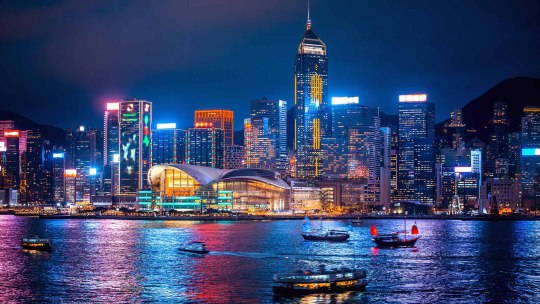
Dream destination: HONGKONG
Hong Kong has always been a favorite destination of tourists, especially of Filipino travelers, as it offers something for everyone--from attractions to food to shopping destinations.
“Hong Kong has always been close to the hearts of Filipino travelers and it is one of Philippines' top travel destinations of choice,” Hong Kong Tourism Board regional director of Southeast Asia Raymond Chan said during the "Marvels in Hong Kong" media event.
The pandemic put a pause on travel for the past two years, but with restrictions slowly easing up globally, tourists have a chance to visit Hong Kong again.
Chan noted that the "0+3 travel measures" is a “significant milestone for Hong Kong.”
“Currently, visitors to Hong Kong are no longer required to undergo hotel quarantine with three-day medical surveillance period,” he explained.
But despite the hitch in global travel, Hong Kong continued to develop its tourism facilities and destinations in the past years to ensure tourists will have something new to look forward to when they return.
history
Hong Kong is a special administrative region (SAR) of the People's Republic of China. It comprises 200 islands located in Eastern Asia bordering the South China Sea and China. Much of Hong Kong's terrain is hilly to mountainous with steep slopes. The government system is a limited democracy; the chief of state is the president of China, and the head of government is the chief executive of Hong Kong. Hong Kong has a free market economy in which the prices of goods and services are determined in a free price system. Hong Kong is a member of the Asia-Pacific Economic Cooperation (APEC).
Hong Kong was established as a colony of the British Empire after the Qing Empire ceded Hong Kong Island in 1841–1842. The colony expanded to the Kowloon Peninsula in 1860 and was further extended when the United Kingdom obtained a 99-year lease of the New Territories in 1898. Hong Kong was briefly occupied by Japan from 1941 to 1945 during World War II. The whole territory was transferred from the United Kingdom to China in 1997. Hong Kong maintains separate governing and economic systems from that of mainland China under the principle of "one country, two systems".[f]
Originally a sparsely populated area of farming and fishing villages,[18][19] the territory is now one of the world's most significant financial centres and commercial ports. Hong Kong is the world's fourth-ranked global financial centre, ninth-largest exporter, and eighth-largest importer. Its currency, the Hong Kong dollar, is the eighth most traded currency in the world. Home to the second-highest number of billionaires of any city in the world, Hong Kong has the largest concentration of ultra high-net-worth individuals. Although the city has one of the highest per capita incomes in the world, severe income inequality exists among the population. Despite having the largest number of skyscrapers of any city in the world, housing in Hong Kong has been well-documented to experience a chronic persistent shortage.
Hong Kong is a highly developed territory and has a Human Development Index (HDI) of 0.952, ranking fourth in the world. The city has the highest life expectancy in the world, and a public transport rate exceeding 90%.
Avenue of stars
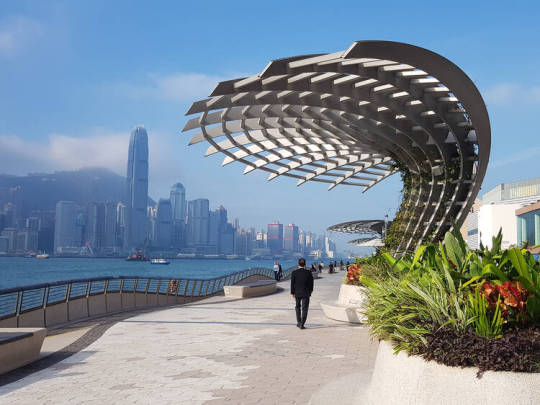
There was a time when Hong Kong’s filmic output was only bested by Hollywood and Bollywood, and while it’s a less prodigious beast these days, the city’s film industry still once produced illustrious names like Bruce Lee, Jackie Chan, Jet Li, the Shaw Brothers, John Woo, and Wong Kar-wai. Avenue of Stars pays tribute to these figures and many others who have helped burnish Hong Kong’s cinematic legacy. Selfie opportunities come with sculptures of Hong Kong legends such as martial arts master Bruce Lee, as well as singer and actress Anita Mui. Even Hong Kong's beloved local cartoon character McDull has a prime spot in front of the Victoria Harbour skyline. Plus, you can check out over 100 handprint plaques set into the wooden handrails along the waterfront.
Theme parks and attractions
It's impossible to talk about Hong Kong and not mention the "'happiest place on Earth."
Hong Kong Disneyland recently unveiled its new Castle of Magical Dreams and even started its new light show, “Momentous
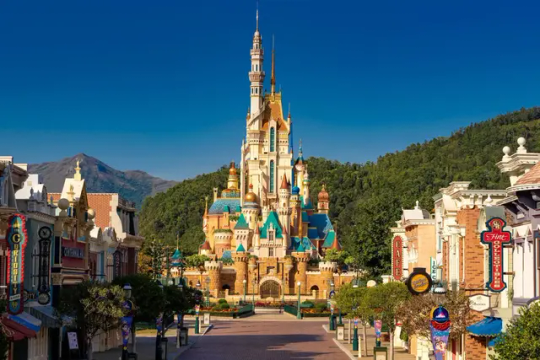
Hong Kong Cuisine
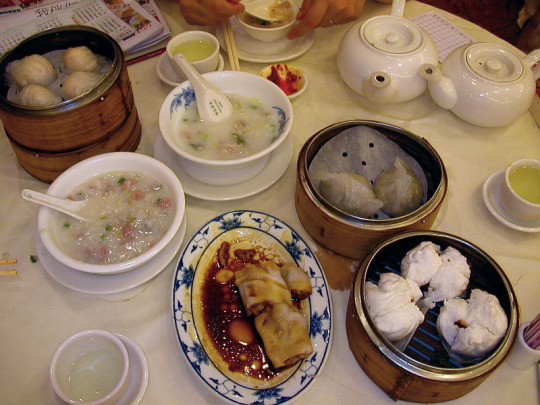
Traditional Hong Kong food hails from the Guangdong Province of China, with the most popular Cantonese dishes consisting of poultry, meat, or seafood alongside rice or noodles and some kind of preserved or pickled vegetables. You’ll find when eating in Hong Kong that there is a dominant sharing culture – most groups order a large meal to be shared together. Street food is also a very significant part of Cantonese food culture in Hong Kong. You’re sure to discover many street stalls selling delicious smelling, often deep fried, foods and snacks!
The culture of hongkong
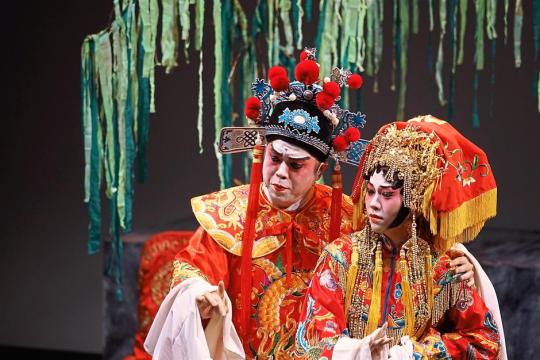
The culture of Hong Kong is primarily a mix of Chinese and Western influences, stemming from Lingnan Cantonese roots and later fusing with British culture due to British colonialism (Jyutping: Jyut6 zeoi6; Traditional Chinese: 粵英薈萃). As an international financial center dubbed "Asia's World City", contemporary Hong Kong has also absorbed many international influences from around the world. Moreover, Hong Kong also has indigenous people and ethnic minorities from South and Southeast Asia, whose cultures all play integral parts in modern day Hong Kong culture. As a result, after the 1997 transfer of sovereignty to the People's Republic of China, Hong Kong has continued to develop a unique identity under the rubric of One Country, Two Systems.
Hong Kong cultural festivals include Chinese New Year, the Dragon Boat Festival, the Mid-Autumn Festival, Christmas and the Western New Year. Expats can expect a great atmosphere at these events which usually involve impressive firework displays. As a city, Hong Kong also enjoys many other cultural events ranging from traditional Cantonese to other Chinese regional operas, theatre productions, ballet performances and music shows.
Hongkong festival
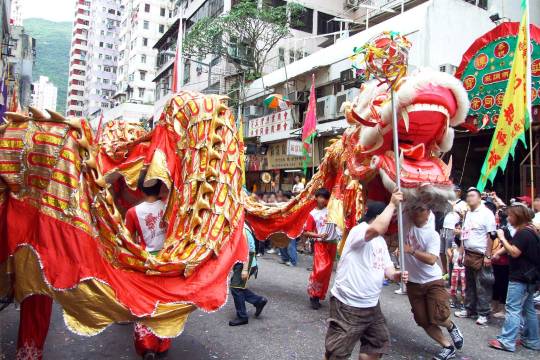
Hong Kong festivals are often lavish affairs with street parades, packed temples, traditional music and dance performances. Chinese New Year is the most important celebration in Hong Kong and many Asian countries, but the city also has plenty of unique festivals you might not find elsewhere.
Buddhist and Taoist events are observed according to the lunar calendar, which means that the dates shift on a yearly basis. Some of Hong Kong’s biggest festivals usually take place in January or February (Chinese New Year), May, and October. It’s best to book your flights and accommodation far in advance as prices tend to soar during these months.
How to get there
Several local airlines such as Air Asia Philippines, Cebu Pacific Air, and Philippine Airlines fly direct several times daily to Hong Kong from Manila departing at Ninoy Aquino International Airport (NAIA). Non-stop flight time from Manila to Hong Kong is around 2 hours 15 minutes.
Budget for Air Asia Philippines : P3,300
Philippine travel tax: P2,500
Where to stay
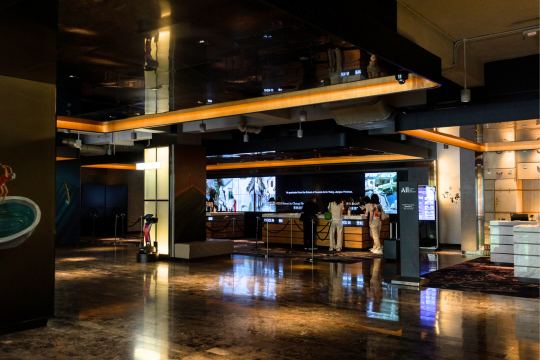
Welcome to The Park Lane Hong Kong, a Pullman Hotel
As soon as you enter the spacious lobby, you will be greeted by captivating digital artworks displayed on large screens. The lobby also showcases exhibitions from the Artist Playground, a Pullman initiative that introduces various artists over time. The hotel offers a blend of art, travel, culture, and technology, ensuring a fulfilling stay. For digital-savy guests, make use of our check-in/out robots to easily check in and check out. Enjoy seamless high-speed Wi-Fi access throughout the hotel. Immerse yourself in a luminous world that harmoniously reflects the essence of Hong Kong and the local lifestyle
Budget for accommodations: P3,000 for 4 nights
Where to eat
Wonton noodles at Mak’s Noodle
The staple of Southeastern China, this delicious brothy delight is common in Hong Kong and can be a thrilling experience if you know where to get it! Typically shrimp, pork and vegetable wrapped in a neat package of thing and springy wonton egg-noodle dough, these little dumpling-like parcels are cooked al dente before being perched atop a steaming hot flavour-filled umami broth. A sprinkle of chopped chives completes the dish which when served should be devoured noodle first to keep your wonton from going soggy. When on the hunt for where to eat in Hong Kong, particularly where to eat wonton noodles, head to Mak’s Noodle – arguably the most renowned noodle shop in the city
Budget for food: S$5 (P175/meal) x 2 meals/day x 5 days = P1,400
How To Get Around
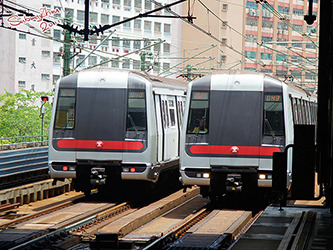
The Mass Transit Railway (known as the MTR) is the fastest and most convenient mode of transport in the urban areas. Serving an average of 4.8 million passengers a day, the MTR covers much of the New Territories, Kowloon and the harbour front of Hong Kong Island, with the latest expansion now including stations at Sai Ying Pun, the University of Hong Kong and Kennedy Town. The Island Line is planned to be extended further south to Aberdeen in 2016, transporting passengers to Ocean Park, a major tourist attraction in the city, as well as Wong Chuk Hang and South Horizons. Other extension plans include Shatin to Central via To Kwa Wan and an express railway linking Hong Kong to Guangzhou and Beijing.
Budjet for transportation : P910
What To See and Do
Spending 5 days in Hong Kong gives you plenty of time to see the top sights & attractions, while not needing to rush through it all. You will be able to take full advantage of your days & nights in Hong Kong, and have the flexibility to move things around as you see fit.
Budjet for attractions: P980
Total budget
P3,300 – Air Asia Philippines
P2,500 – Philippine travel tax
P3,000 – Accommodations
P1,400 – Food
P910 – Transportation
P980 – Attractions
——
P12,090 – TOTAL
Reference:
https://en.m.wikipedia.org/wiki/Hong_Kong
https://en.m.wikipedia.org/wiki/Hong_Kong#:~:text=Hong%20Kong%20was%20established%20as,the%20New%20Territories%20in%201898.
https://www.william-russell.com/blog/hong-kong-culture-and-customs-guide-expats/#:~:text=With%20such%20a%20rich%20mix,and%20the%20Western%20New%20Year.
https://en.m.wikipedia.org/wiki/Hong_Kong_cuisine
4 notes
·
View notes
Text
The 13th Canon x McDull Inter-school Ink Cartridge Recycling Award Presentation Ceremony
HONG KONG SAR – Media OutReach Newswire – 11 July 2024 – Canon Hongkong Company Limited (Canon Hong Kong) successfully held the “13th Canon x McDull Inter-school Ink Cartridge Recycling Award Presentation Ceremony cum Green Carnival” at the Canon Business Experience Center on 6 July 2024. Aiming at commending the winning schools for their outstanding performance in ink cartridge recycling,…
0 notes
Text
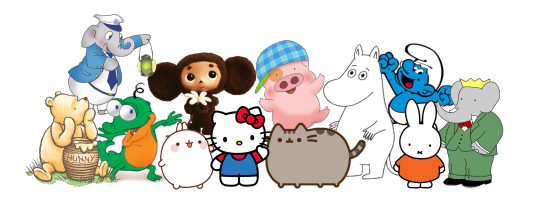
cute little dudes from around the world
From right to left: Winnie the Pooh (England), Bholu (India), Schnappi (Germany), Molang (South Korea), Cheburashka (Russia), Hello Kitty (Japan), Pusheen (United States), McDull (Hong Kong), Mumintrollet (Finland), a Smurf (Belgium), Miffy (Netherlands), and Babar (France)
#something about every culture having their own Cute Little Dude everyone knows is very endearing to me#Well… I'm pretty much only familiar with Asian and European mascot characters though so :/#Not as multicultural as I'd like. Need to find some cute little guys from the rest of the world#if you see this and your culture isnt represented please comment your own culture's Cute Little Dude#i'd love to learn about them!#winnie the pooh#pooh bear#bholu#schnappi#Schnappi das kleine Krokodil#molang#cheburashka#hello kitty#kitty-chan#pusheen#mcdull#mumintrollet#moomin#the smurfs#miffy#babar#babar the elephant
136 notes
·
View notes
Note
Requesting some Lu Ten spending time with smol Azula?

When I was a bebe, humanoid dolls creep me out a lot and i’d cry. So instead we have a lot of animal stuffed toys, I really liked Mcdull back then (it’s a famous local cartoon character, basically a spotted pig, there’s a cartoon of it and it’s quite interesting to watch since it reflects our city’s issues and how adults act in a society for the perspective of a child.)
#lu ten atla#atla azula#smol Azula#fire nation#fire nation royalty#Mcdull#I’d really like to talk about the cartoon#It’s a big part of our local culture#art requests
93 notes
·
View notes
Text

DAY 87: 6. 11. 2020
Leon as McDull
🐷🐖🐽
McDull is a cartoon character from Hong Kong! He is part of many HKers' childhood!
(also this is hks outfit on the character songs cover lol)
15 notes
·
View notes
Text
tagged by: @sleepanon
Last Song: Ella Fitzgerald & Louis Armstrong - “Cheek To Cheek”
Currently Watching: Dungeon Meshi
Three Ships: I haven't shipped anyone in ages. Might just be out of the loop fandom or media-wise.
Favourite Colour: Bounces around between teal and orange.
First Ship: Original anime Kunzite/Zoisite was a moment.
Place of Birth: Canada
Current Location: Canada
Relationship: In mutual "like", but nothing more serious at the moment.
Last Movie: McDull, Prince de la Bun. A search for clips turned into the whole hog.
Currently working on: Improving my Cantonese and cooking. Slow going but it's happening.
Not usually the kind of thing I post or see regularly on my dash, but anyone interested feel free to respond.
1 note
·
View note
Text
Transformation of Light and Shadow: The Struggles and Courage of 2000s Hong Kong–Taiwan Cinema
In the 2000s, Hong Kong and Taiwanese film were quietly undergoing a “civilizational transformation.” Looking across the Chinese��language screen landscape of that era, you saw beams of light piercing the familiar shadows of crime thrillers and comedies: the romance and loneliness of Turn Left, Turn Right (向左走·向右走), the terror and critique of Double Vision (雙瞳), the everyday grit and healing balm of My Life as McDull (麥兜故事). Each of these films illuminated audiences’ unnamed yearnings.
youtube
Before then, we’d grown accustomed to explosive gunfire and lowbrow gags. Rarely did the screen dare treat loneliness, childhood innocence, or trauma with sincerity. Turn Left, Turn Right—built on Jimmy Liao’s storybook aesthetic—used the temperaments of Gigi Leung and Takeshi Kaneshiro to enact an urban fable, while Schubert’s “Serenade” cleansed the audience’s nerves, every camera move feeling like a heartbeat. Double Vision strode boldly amid religion, detective work, and psychological horror; Anthony Wong and Ge You’s performances ignited a probe into society’s darker side—less a movie than a stare into human obsession. And though wrapped in animation, My Life as McDull never shied from everyday struggles or Hong Kong’s collective wounds. Its low‐budget creativity forged the most earnest resonance.
It was these works that suddenly made us realize: Chinese‐language film could be aesthetic, profound, critical—even unafraid to leave some viewers perplexed. In that moment, we were like the protagonists of Turn Left, Turn Right, hovering between reality and fantasy—yearning to understand, yet afraid to miss something.
Yet after that transformation, the paths of Hong Kong and Taiwan diverged.
Hong Kong filmmakers faced ever‐greater market pressures: Mainland China had become the box‐office battleground, and censorship’s shadow crept in. More co‐productions were made, themes had to be “positively charged,” characters could not be too morally gray, and dialogue required cautious polishing. Directors once famed for their critical edge—Johnnie To, Ann Hui—were forced to balance capital and censorship, gradually retreating behind the camera or fading from view. That once‐edgy “Hong Kong flavor” dulled through cuts and compromises; even McDull’s sequels shaved off the first film’s sharpness, leaving only a tame “cuteness.”
In Taiwan, though the market was small and resources scarce, that very “pennilessness” emboldened creators not to fear censorship or bow to the mainstream. After 2010, government subsidies gradually took root, and Cape No. 7 (海角七號) astonished audiences, hauling Taiwanese film back into the spotlight. More directors began to reach out—using their cameras to tell stories of social issues, gender, historical scars, and personal emotion. In films like Dead Talents Society (鬼才之道), Till We Meet Again (月老), and Marry My Dead Body (關於我和鬼變成家人的那件事), you can sense that flame of “fearless truth‐telling”—not mass‐produced by an industrial assembly line, but unapologetically preserving the author’s soul.
youtube
Looking back on that “painful transformation,” we see both regions enduring similar pangs: external pressure on one side, the challenge of self‐reinvention on the other. Taiwanese filmmakers gritted their teeth and held fast to their ideals; their visions may remain cool and restrained, but they never lost the courage to shout. Hong Kong’s lens, meanwhile, grew weary—learning to contract, to compromise, to chase box office and distribution.
If Double Vision’s most chilling moment is Anthony Wong’s distorted expression as he stares at that mysterious symbol, in that second you glimpse the creator’s own doubt and unease—our heartbeat between censorship and self‐censorship. Today, when we revisit these films, it’s not just to commemorate the shock they once delivered, but to remind ourselves: dare to face the shadows, and never lose the passion to pursue freedom’s light. Perhaps the next film that truly “fears neither audience confusion nor government displeasure” won’t be a big‐budget spectacle—but it will burn bright at some niche festival, igniting and illuminating our most fragile yet longing hearts.
The courage of that era, and the subtle pain and hope woven into its light and shadow, deserve to be savored and safeguarded—again and again.
0 notes
Photo

My Six Fanarts! Long overdue but oh well.
[photo id: six portraits, from left to right, top to bottom. linh song, from the keeper of the lost cities series, with water surrounding her. akaashi keiji from haikyuu!!, holding a volleyball in his hands. bb-8 from star wars, peeking out from the lower left corner. mcdull of mcdull, with a red and orange baseball cap angled to the right, his hands angled left. one of the many robots from castle in the sky, with moss growning over its body and a fox squirrel on its right shoulder. lastly, luna lovegood, from harry potter, wearing her school uniform, radish earrings, and spectrespecs.]
#linh song#kotlc#keeper of the lost cities#akaashi keiji#hq#bb-8#star wars#mcdull#laputa#castle in the sky#luna lovegood#harry potter#fanart#sixfanarts#haikyuu!!#my art
9 notes
·
View notes
Photo

初四開工大吉!謹祝各位萬事如意,身體健康,豬年行大運! . 🎥Youtube:https://www.youtube.com/channel/UCt2HCZd_dteanZ1N36WFO0Q 📱Facebook: https://www.facebook.com/chengsfactory/ 📜Blogspot: https://chengsfactory.blogspot.hk/ . 3月份<復活節兔仔造型麵包班>現正接受報名! https://shop.daydaycook.com/product_detail/tc/18571/index.html . . . #鄭大小姐工房 #ChengsFactory #農曆新年 #祝福 #煮播之日常 #初四啟市 #麥兜 #復活節烘焙班 #烹飪導師 #周末好去處 #ChineseNewYear #blessings #StartWorkingAgain #McDull #easterbakingclass #cookingteacher #weekendactivity #烹飪 #烘焙 #食譜 #自家製 #cooking #baking #recipe #homemade #foodie #foodshare #hkfood (在 Hong Kong) https://www.instagram.com/p/BtmWJsFn1-n/?utm_source=ig_tumblr_share&igshid=128gth7eo1dak
#鄭大小姐工房#chengsfactory#農曆新年#祝福#煮播之日常#初四啟市#麥兜#復活節烘焙班#烹飪導師#周末好去處#chinesenewyear#blessings#startworkingagain#mcdull#easterbakingclass#cookingteacher#weekendactivity#烹飪#烘焙#食譜#自家製#cooking#baking#recipe#homemade#foodie#foodshare#hkfood
1 note
·
View note
Photo

Old master Q and McDull... what district of HK can you find these two icons together? #hk #hongkong #oldmasterq #mcdull
3 notes
·
View notes
Text
Those Daydreams on the Silver Screen, Tonight’s Silent Echo—A Farewell to the Era of Hong Kong Cinema
Who knows how many people spent their youth accompanied by Hong Kong films. It was an irreplaceable time—Jackie Chan scaling rooftops, Stephen Chow’s absurd ramblings, the wild fantasy brawls of Future Cops (超級學校霸王), and that seemingly simple yet world-weary little pig, McDull (麥兜)… These characters, these images, these lines still sparkle in the light and shadow of my memory.
youtube
Hong Kong cinema was once the territory’s most radiant cultural export, and for countless viewers beyond any border, a universal emblem of entertainment. From gangster dramas and ghost stories to martial-arts action and slapstick comedies, Hong Kong films were like a bustling, colorful night market—every flavor you could imagine, every taboo they dared to trample. Those movies weren’t yet shackled by political censorship or the scruples of hyper-moralistic times. Jokes now deemed “lowbrow” or scenes now too scandalous to utter were then household talk and laughter on every street corner.
Take The Untold Story (人肉叉燒包), adapted from a real-life crime, its chilling gore not only cemented Anthony Wong’s career but ignited a wave of human-flesh horror flicks. In an age when filmmakers could still dwell in darkness and confront harsh social realities, cinema was more than entertainment—it was a brutal yet truthful reflection of society.
Ironically and tragically, many of those legendary classics were made amid chaotic underworld financing and gangster coercion. Hong Kong’s film industry then was wild in its disorder, creative even in its violence—much like Taiwan’s cinema of the same era, fraught with contradictions yet bursting with unexpected brilliance.

But sadly, after 1997, everything began to change. The handover didn’t just rewrite national identity—it brought sweeping censorship, financial pressures, and creative restrictions. The glory of Hong Kong’s screen industry slowly crumbled; the stars who once shone brightly either migrated to the Mainland, turned to television, or faded into silence. Whenever you hear news of a “big-budget” Hong Kong production, you can’t help but feel uneasy—wondering if it’s merely an empty tribute, distilled nostalgia, or a hollow bid to please the market.

What truly moves me instead are films like Time Still Turns the Pages (年少日記)—quiet, understated works that probe the human heart without relying on big-name casts or special effects. They face Hong Kong’s wounds with gentle yet incisive language, speaking sorrow with honesty. Such films, to me, carry forward the spirit of “daring to make films, knowing how to make them.”
And amid all the clamors and laments, McDull remains a singular sight.
youtube
When I first watched My Life as McDull (麥兜故事), I expected merely a family-friendly animated comedy. What I discovered was an onion of emotion—vignettes of ordinary folks’ lives and childhood disappointments. Imagining a Thanksgiving turkey you can’t afford, circling Maldives on a map because you’ll never go—these small absurdities veil the true realities of Hong Kong’s working class. Compared to grandiose stories about dreams and success, McDull’s honest, earnest humor moves you to tears through laughter.
Later sequels—McDull, Prince de la Bun (麥兜菠蘿油王子); McDull, the Alumni (春田花花同學會); McDull: Me & My Mum (麥兜我和我媽媽)—continued to frame adult frustrations through absurdity and childlike play. Their pastel-crayon world feels light yet weighty with meaning. These rare family-friendly works transcend sleaze, violence, and vulgarity to become genuine popular art.
Yet as the Mainland market expanded and political storms swirled, later McDull films like McDull: Rise of the Rice Cooker (麥兜·飯寶奇兵) began to lose their essence—compromising for censorship and box-office appeal, the authentic “Hong Kong flavor” was diluted. Now, any hope for new McDull adventures feels like a distant dream.
In the end, the public’s impression of Hong Kong cinema remains stuck on zany comedies, violent gangsters, and chilling ghosts. Undeniably a part of history and the foundation of classic status—but these facets cannot obscure the era’s richer dimensions. Truly cross-generational, family-friendly Hong Kong films are few and far between—and McDull is among the precious few.

Looking back on the golden age of Hong Kong cinema, one can’t help but wonder: has that brilliance truly passed? And will Taiwan—once Hong Kong’s equal and itself hit by an industry winter—repeat the same cycle?
In recent years, Taiwanese film has seen fresh investment and resources, seemingly flourishing. But will it secure lasting creative freedom? Will it forge its own era’s classics? Can it avoid the trap of pandering so deeply that it loses its soul? These questions remain to be answered.
Still, I believe genuine classics aren’t measured by box office or ratings alone. They spring from the purest creative impulses—not market trends, political correctness, or platform algorithms, but a society’s wounds, a collective trauma, a heartfelt emotion.
That is what Hong Kong cinema once embodied. May the future of Chinese-language film find its way back to that path of honesty.

0 notes
